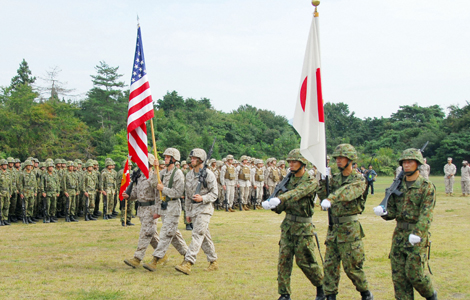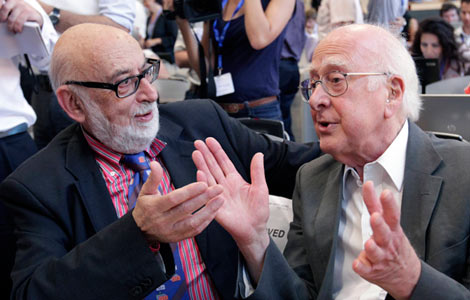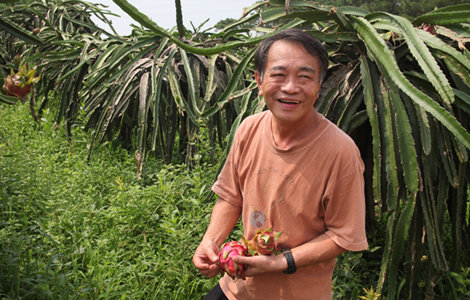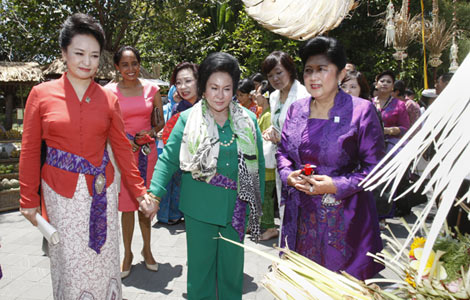Education must nurture as well as teach
Updated: 2013-10-09 07:18
By Chen Yanru (China Daily)
|
||||||||
In an era that overemphasizes efficiency and promotes shortcuts to success, we have to acknowledge, to the dismay of many, that there may not be any universally applicable "key" to success in, or through, education.
The Chinese used to have a lofty term for teachers, "gardener", implying that teachers should care for each student as a gardener nurtures each plant with its own defining characteristics.
Some plants are strong and staunch, some are weak and elegant, but each shines to the delight of its owner's eyes. But in reality, what does education do?
Although educators and philosophers of education have repeatedly professed the belief that each individual student is unique, our education actually functions on an "industrial logic", calling students "products", training them as a skilled worker for an assembly line.
The problem lies in the science of education that attempts to generate "laws" governing the secret to success in, and through, education.
Statistics seem persuasive and convincing, yet the actual paths to individual cultivation and societal success vary from case to case. Just think, of all the exceptional young talents selected to enter college ahead of school before the age of 16 through a fast track, how many of them have amounted to true "successes" who have made valuable inputs into science and technology? Of those Chinese students who went abroad to study at the Ivy League schools at college age, how many have emerged after more than a decade as truly accomplished gentlemen or ladies?
And the distressing fact is that numerous parents and their schoolchildren are trying to follow suit by treading this "success path" glamorized by a media limelight which claims a magic route to success if their children simply follow a certain "formula" of education.
Empirical cases of success do not indicate what amount of formal education is necessary for a person to be an effective social climber or, better yet, an accomplished scholar, entrepreneur, or statesman.
Then there comes the measure for successful education. If we commit ourselves to the belief that a rose-like student is to be tended differently from a lily-like student, we would not have vehemently adhered to inflexible "standards" in education that "trim" each student into identical "models".
Indeed, setting exemplary "models" for educators or students is another problem. We always wonder and marvel at the astonishing fact that so many unique and creative children become so many identical and boring adults. Such a phenomenon can be partially ascribed to the "model teachers" and "model students" who serve as exemplars for all others to emulate.
While such policies and practice is well-intended, they run contrary to the sound logic of education, which should aim at letting each student become the best of him/herself, different from, but equal, to others.
The problems in "standards" and "models" lead us to the next question about education, and that is how knowledge should be acquired so that it can be applied and advanced.
All the way up to college entrance exams, students are required to sit for exams that trick them into figuring out the "right answer" to every question, even in subjects such as literature and history. Even my college students often panic when they feel that they failed to "guess" what might be the "right answer" in the teacher's mind.
In such cases, what the students badly need is the assurance that they should personalize the knowledge they have learned and turn it from mere "head knowledge" into a kind of "heart knowledge", which incorporates their personal life experience in the emotional, physical and intellectual realms.
Too often I have to give a gentle reminder to my poor students who have been used to being spoon fed all the way through their education, "Stop trying to guess right. Don't even worry too much about how to do right. Just be right with yourself, with a sincere attitude in seeking the truth on your own, and then share your findings with others in your own words".
It is high time that educators re-examined themselves as "gardeners" rather than "engineers" of the human soul.
The best advice we can give to overly eager parents and students craving for worldly success is to "do the best, and leave the rest, and do not worry".
The author is a professor with the School of Journalism & Communication at Xiamen University.
(China Daily 10/09/2013 page8)
Most Viewed
Editor's Picks
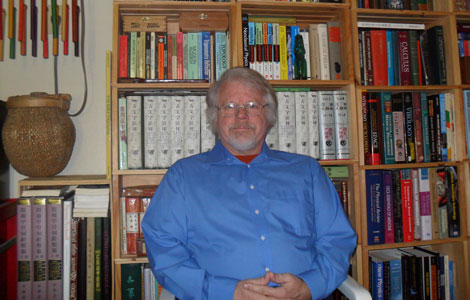
|

|

|

|

|

|
Today's Top News
Back to 1942, entered for the 86th Oscars
Obama says he'll negotiate once 'threats' end
Unprotected sex brings sharp rise in HIV/AIDS
Japan-US military drill raises tension
Xinjiang bid to curb terrorist attacks
No Xmas in July for vendors at Yiwu's market
Yellen to be nominated for Fed chair
Xi calls for more APEC connectivity
US Weekly

|

|
